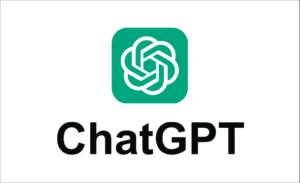
What is ChatGpt
ChatGPT is a large language model (LLM) chatbot developed by OpenAI and launched in November 2022. It’s based on the GPT-3.5 and GPT-4 language models, and allows users to have human-like conversations, gain insights, automate tasks, and explore the capabilities of AI.
ChatGPT 4
ChatGPT 4, released in March 2023, is the latest iteration of OpenAI’s Generative Pre-trained Transformer (GPT) technology. It’s a multimodal large language model, meaning it can process and generate text, translate and write different creative text formats, and answering questions in an informative way.
What is the function of ChatGPT 4
ChatGPT 4, being a powerful large language model, boasts a diverse range of functions.
General-purpose functions:
- Answering your questions :Whether simple or complex, ChatGPT 4 can access and process vast amounts of information to provide informative and comprehensive answers to your queries.
- Generating different creative text formats :Unleash your creative potential by utilizing ChatGPT 4 to generate poems, scripts, musical pieces, letters, emails, and more.
- Translating languages :Break down language barriers by using ChatGPT 4 to translate text between 26 different languages, facilitating communication and understanding.
- Writing different kinds of creative content :From blog posts and articles to scripts and marketing materials, ChatGPT 4 can generate creative and engaging content tailored to your needs.
- Solving difficult problems :Thanks to its advanced reasoning and problem-solving abilities, ChatGPT 4 can assist you in tackling complex challenges and finding creative solutions.
Specific application-based functions:
- Chatbot development :Create intelligent and engaging chatbots that can interact with users naturally, answer questions, and provide customer service.
- Content creation :Generate high-quality content for various purposes, including websites, social media, marketing campaigns, and more.
- Research and development :Accelerate research efforts by leveraging ChatGPT 4 for data analysis, hypothesis generation, scientific writing, and other tasks.
- Education and learning :Enhance personalized learning experiences by providing students with tailored learning materials and interactive tools powered by ChatGPT 4.
- Software development :Developers can utilize ChatGPT 4 for code generation, bug fixing, and documentation to streamline development processes.
- Personalization :ChatGPT can be customized to your specific needs and preferences, providing a more tailored user experience.
- Integration :It can be integrated with various applications and tools, expanding its potential and functionality.
This is just a glimpse into the vast potential of ChatGPT 4. As technology continues to evolve, we can expect even more innovative and groundbreaking applications to emerge from this powerful language model.
Remember, the specific functions of ChatGPT 4 will depend on the chosen platform and how you choose to utilize its capabilities. For further information about specific applications, it’s best to consult the relevant documentation or contact OpenAI directly.
What make ChatGPT 4 different from other ai
ChatGPT 4 stands out from other AI models in several key ways:
- Multimodality :Unlike most AI models that primarily handle text, ChatGPT 4 can process and generate various modalities like text, images, and voice. This allows it to understand and respond to complex prompts involving multiple information formats.
- Improved Reasoning :Compared to previous models, ChatGPT 4 exhibits significantly better reasoning capabilities. It can analyze information, understand context, and draw logical conclusions, leading to more insightful and relevant responses.
- Broader Knowledge Base :ChatGPT 4 is trained on a vast dataset of text and code, encompassing diverse topics and domains. This translates to broader knowledge and understanding, enabling it to answer intricate questions and generate more informative content.
- Enhanced Safety Measures :OpenAI has implemented safeguards to minimize biases and harmful outputs from ChatGPT 4. It ensures that its responses are informative, objective, and respectful, fostering responsible and ethical AI usage.
- Advanced Capabilities :ChatGPT 4 offers several advanced features not found in other models. These include code generation, scriptwriting, translation, and even the ability to write different creative text formats like poems and musical pieces.
- Continuous Improvement :OpenAI actively researches and updates ChatGPT 4, constantly improving its performance and expanding its capabilities. This ensures that it remains at the forefront of large language model technology.
While other AI models offer valuable capabilities, ChatGPT 4’s unique combination of features and functionalities makes it a powerful and versatile tool with a broad range of applications. Its ability to handle diverse modalities, reason effectively, access vast knowledge, prioritize safety, and perform advanced tasks gives it a significant edge in the AI landscape.
Is ChatGPT 4 up-to-date?
It depends on what you mean by “up-to-date.” GPT-4 is constantly being updated with new data and information, so it is always learning and improving. However, there is a time lag between when new information becomes available and when it is incorporated into the model. Therefore, GPT-4 is not always completely up-to-date on the latest events.
Here is some information about the current state of GPT-4 :
- Knowledge cutoff date :The most recent information that GPT-4 has access to is from January 2023. This means that GPT-4 may not be aware of any events or developments that have occurred since then.
- Performance :According to OpenAI, GPT-4 is still under development, but it has already achieved human-level performance on various professional and academic benchmarks. It is able to generate text, translate languages, write different kinds of creative content, and answer your questions in an informative way.
- Availability :GPT-4 is currently available through OpenAI’s API program. However, access to the API is limited and requires approval from OpenAI.
GPT-4 is a powerful language model that is constantly being updated and improved. While it may not be completely up-to-date on the latest events, it is still capable of generating human-quality text and performing a variety of tasks.
Does ChatGPT 4 have real time data
ChatGPT 4 does have access to real-time data. This is a major improvement over previous versions of ChatGPT, which were limited to information available before September 2021.
ChatGPT 4’s access to real-time data is powered by OpenAI’s partnership with Microsoft Bing. This means that ChatGPT 4 can access and process information from the web in real-time, allowing it to provide more up-to-date and accurate answers to your questions.
Here are some specific examples of how ChatGPT 4 can use real-time data :
- Answer your questions about current events. For example, if you ask ChatGPT 4 “What is the latest news on the stock market?” it will be able to access and process information from financial news websites and provide you with an up-to-date answer.
- Provide you with real-time information about weather, traffic, and sports scores. For example, if you ask ChatGPT 4 “What is the weather forecast for tomorrow?” or “The current game score?” it will be able to access and process information from weather websites and sports websites to provide you with an accurate answer.
- Help you with tasks such as booking appointments or making travel arrangements. For example, if you ask ChatGPT 4 “Can you help me book a flight to New York?” it will be able to access and process information from airline websites to help you find and book the best flight for your needs.
It’s important to note that ChatGPT 4’s ability to access and process real-time data is still under development. OpenAI is constantly working to improve the accuracy and reliability of this feature. Additionally, it’s important to use ChatGPT 4 responsibly and be aware of the potential for bias and misinformation in real-time data.
ChatGPT 4’s access to real-time data is a significant step forward for large language models. It allows ChatGPT 4 to provide more up-to-date and accurate information, making it a valuable tool for a wide range of tasks.
How do I use ChatGPT 4 with live data?
ChatGPT 4 offers several ways to utilize live data, depending on your specific needs and access level:
- This free platform allows basic interaction with ChatGPT 4. While limited in features and query volume, it provides access to real-time information through Bing search integration.
- Simply ask your question, and ChatGPT will use Bing to gather relevant information and provide an up-to-date response.
- ChatGPT Plus :
- This paid subscription unlocks additional features and functionality, including:
o Increased query limits
o Access to multiple models, including ChatGPT 4 with full access to live data
o Enhanced performance
o Priority support
- This allows for more complex and data-driven tasks, such as real-time analysis and decision-making.
- OpenAI API :
- Developers can access ChatGPT 4 and its real-time data capabilities through the OpenAI API.
- This offers the most flexibility and control for integrating ChatGPT 4 with your own applications and tools.
- Requires knowledge of technical and coding expertise.
Here are some specific examples of how you can use ChatGPT 4 with live data :
- Get real-time updates on weather, traffic, and sports scores.
- Track the latest news and developments in your industry.
- Analyze real-time data to make informed decisions.
- Create personalized and dynamic content based on current events.
- Develop AI-powered chatbots and assistants that can interact with live information.
How much does ChatGPT cost per month?
The cost of using ChatGPT 4 depends on the specific platform and features you need. Here’s a breakdown of the different pricing options:
Free Option :
- Chat.OpenAI.com: This platform allows you to interact with ChatGPT 4 for casual conversations and basic tasks completely free of charge. However, you will have limited query limits and access to features.
Paid Options :
- ChatGPT Plus :This is OpenAI’s paid chatbot product that offers access to ChatGPT 4 with various features and functionalities. It costs $20 per month and includes:
o Increased query limits
o Access to multiple models
o Enhanced performance
o Priority support
OpenAI API :
- Developers can access ChatGPT 4 through OpenAI’s API for integration into their own applications and tools. The cost of the API is based on the number of tokens used, with prices starting at $0.006 per 1,000 tokens.
Additional Costs :
- Fine-tuning :If you want to customize ChatGPT 4 for a specific task or domain, you can do so through fine-tuning. This process involves training ChatGPT 4 on a dataset of your own text and code. The cost of fine-tuning depends on the size and complexity of your dataset.
- Model Hosting :If you are using the OpenAI API, you will also need to pay for the cost of hosting the model on OpenAI’s infrastructure. The cost of hosting depends on the type of model you are using and the amount of data you are processing.
Can you sell ChatGPT output?
Whether or not you can sell ChatGPT output depends on the specific terms of service and policies of the platform you are using. However, in general, it is important to be aware of the following:
OpenAI’s terms of service: OpenAI, the developers of ChatGPT, state in their terms of service that users are not allowed to “sell, resell, license, sublicense, distribute, or otherwise transfer” any of the information generated by ChatGPT without prior written permission from OpenAI. This means that you cannot directly sell the output of ChatGPT for commercial purposes.
Copyright considerations: It is still unclear whether AI-generated content can be copyrighted in most jurisdictions. In the United States and the European Union, for example, copyright law generally protects creative works authored by humans. This means that if you are selling ChatGPT output, you may not be able to claim copyright protection for it.
Ethical considerations: There are also ethical considerations associated with selling AI-generated content. It is important to be transparent about the fact that the content was created by an AI model and to ensure that the content is accurate and unbiased.
Exceptions: There may be exceptions to the above rules. For example, OpenAI has introduced a separate API program that allows developers to build applications using ChatGPT’s capabilities. However, the generated content must still comply with OpenAI’s usage policies and terms of service.
